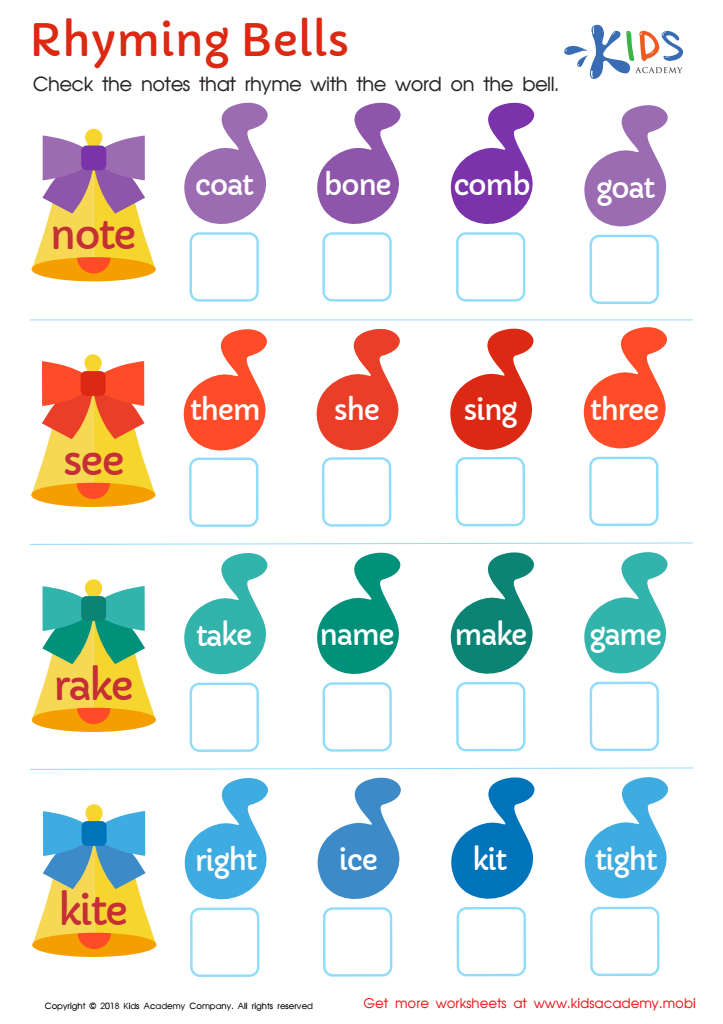Rhyming skills development Normal Phonics Worksheets
4 filtered results
-
From - To
Unlock your child's phonics potential with our "Rhyming Skills Development Normal Phonics Worksheets." Designed for early learners, these engaging worksheets help children recognize and produce rhyme, enhancing their phonemic awareness. Each activity encourages interactive play, making learning enjoyable. With a variety of exercises, students practice identifying rhyming words, building their vocabulary, and improving reading fluency. Perfect for classroom or home use, our worksheets cater to the diverse needs of young learners. Support your child’s literacy journey by fostering a love for language and rhythm. Download our rhyming worksheets today and watch your child's confidence soar as they master vital phonics skills!


Rhyming Words Rhyming Worksheet


Rhyming Bells Worksheet


First Words: Picture Rhymes Worksheet
Rhyming skills and phonics development are crucial components in early literacy, making them essential for parents and teachers to focus on. Rhyming enhances phonemic awareness, which is the ability to hear, identify, and manipulate sounds in words. This skill helps children understand the structure of words and lays the foundation for reading. When children engage with rhymes, they become more adept at recognizing sound patterns, ultimately aiding in word decoding.
Furthermore, phonics instruction teaches children the relationships between letters and sounds, essential for reading and writing proficiency. Mastery of these skills leads to improved vocabulary and comprehension, making reading a more enjoyable and successful experience for young learners.
Additionally, rhyming games and activities foster social and emotional development, as they often involve playful interactions that build confidence and encourage collaboration. By prioritizing rhyming skills and phonics in early education, parents and teachers provide children with the tools necessary for successful reading and writing in later grades, setting a lifelong foundation for literacy. Encouraging these skills early not only makes learning fun but also increases a child’s chances for academic success, reducing future literacy challenges.
 Assign to My Students
Assign to My Students















